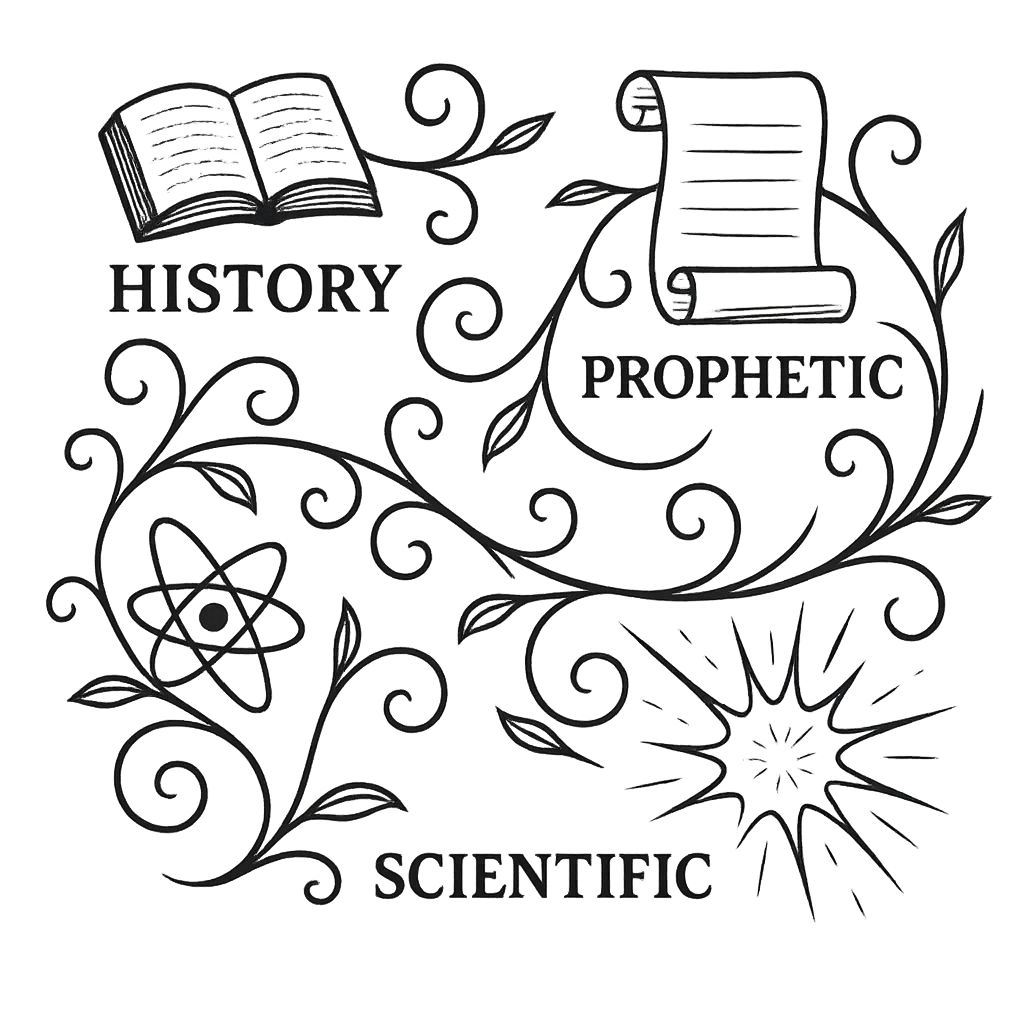The expanding universe refers to the observation that space itself is stretching, causing galaxies to move away from each other over time. This was first confirmed by Edwin Hubble in the 1920s, when he observed that the light from distant galaxies is redshifted, meaning they’re receding from us.
Key points:
- The universe is not expanding into anything; space itself is growing.
- This expansion is consistent everywhere — no matter where you are in the universe, everything appears to be moving away.
- The expansion began at the Big Bang, about 13.8 billion years ago.
- Since 1998, we’ve known that the expansion is accelerating, likely due to dark energy.
🔍 What Does Expansion Tell Us About Origins?
Here’s where things get philosophically rich.
- An Expanding Universe Implies a Beginning
If the universe is expanding, then logically, in the past, it must have been smaller — ultimately compressed into a single point of infinite density: the cosmic singularity.
That beginning is what we call the Big Bang. - Beginnings Require Causes
According to the principle of causality, everything that begins to exist must have a cause.- Since space, time, matter, and energy began at the Big Bang, the cause must be:
- Spaceless
- Timeless
- Immaterial
- Extremely powerful
- Personal (to choose to create)
- Since space, time, matter, and energy began at the Big Bang, the cause must be:
This aligns with the classical attributes of a Creator — a key argument in the Kalam Cosmological Argument, often promoted by Frank Turek.
🛠️ How Does the Expanding Universe Show Fine-Tuning?
Here’s where science meets design.
1. Rate of Expansion
- If the expansion rate were slightly faster, matter wouldn’t clump together — no stars, galaxies, or life.
- If it were slightly slower, gravity would collapse the universe back on itself.
- According to physicist Stephen Hawking, the odds of getting the expansion rate right by chance are about: 1 in 10^60
This is extreme fine-tuning.
2. Cosmological Constant (Dark Energy)
- The cosmological constant governs the rate of accelerated expansion.
- Its value is fine-tuned to 1 part in 10^120 — a precision physicist Leonard Susskind describes as “the most extreme example of fine-tuning in all of physics” (The Cosmic Landscape, 2005).
Tweak this even slightly, and the universe either tears itself apart or collapses too soon for life to develop.
🧠 Frank Turek’s View
Frank Turek — Christian apologist and author of I Don’t Have Enough Faith to Be an Atheist — uses these arguments frequently.
- The Expansion = A Beginning = A Beginner
Turek says that since the universe had a beginning (confirmed by expansion), it must have had a cause outside of space-time, which he argues is God. - Fine-Tuning = Design
Turek stresses that the extreme precision in constants like the expansion rate, gravity, and dark energy cannot be due to chance. He argues: “Fine-tuning implies a Fine-Tuner.” - Faith vs. Reason
He challenges skeptics by flipping the question: “If you don’t believe in God, you have to believe all this fine-tuning happened by chance. That takes more faith.”
🧬 Naturalist Objections (and Turek’s Replies)
| Naturalist Claim | Turek’s Response |
|---|---|
| The multiverse explains fine-tuning | You still need to explain the origin of the multiverse — and why this universe is life-permitting. |
| Future physics will explain it | Appealing to unknown future science is speculative, not evidence-based. |
| Maybe it just happened by chance | Extremely improbable events require more than “maybe” — that’s blind faith, not science. |
🧾 Conclusion: Expansion as a Fingerprint of Design
The expanding universe points strongly toward a beginning, and a beginning suggests a cause. When combined with the precise fine-tuning of physical laws (especially those governing expansion), the most reasonable inference for many, including thinkers like Penrose and Turek, is not random accident, but intentional design.
In short: The universe is not just expanding — it’s declaring.
📚 References
- Turek, Frank & Geisler, Norman L. (2004). I Don’t Have Enough Faith to Be an Atheist. Crossway Books.
- Turek builds the case for a theistic worldview using the cosmological argument, moral law, and design (including expansion and fine-tuning).
- Quote & Theme: “Fine-tuning implies a Fine-Tuner” and that it takes more faith to be an atheist than a theist.
- Stephen Hawking (1988). A Brief History of Time. Bantam Books.
- Hawking discusses the fine-tuning of the universe’s expansion rate.
- Quote (paraphrased in many contexts): “If the rate of expansion one second after the Big Bang had been smaller by even one part in 100,000 million million, the universe would have re-collapsed.”
- Also cited in The Universe: The Cosmological Quest for God by David Fergusson and others.
- Penrose, Roger (2010). Cycles of Time: An Extraordinary New View of the Universe. Bodley Head.
- Discusses entropy and the extreme improbability of the early universe’s low-entropy state.
- Leonard Susskind – The Cosmic Landscape: String Theory and the Illusion of Intelligent Design (2005)
- NASA – Wilkinson Microwave Anisotropy Probe (WMAP) Mission
https://map.gsfc.nasa.gov- Primary observational evidence for cosmic expansion and the age of the universe.

Leave a Reply